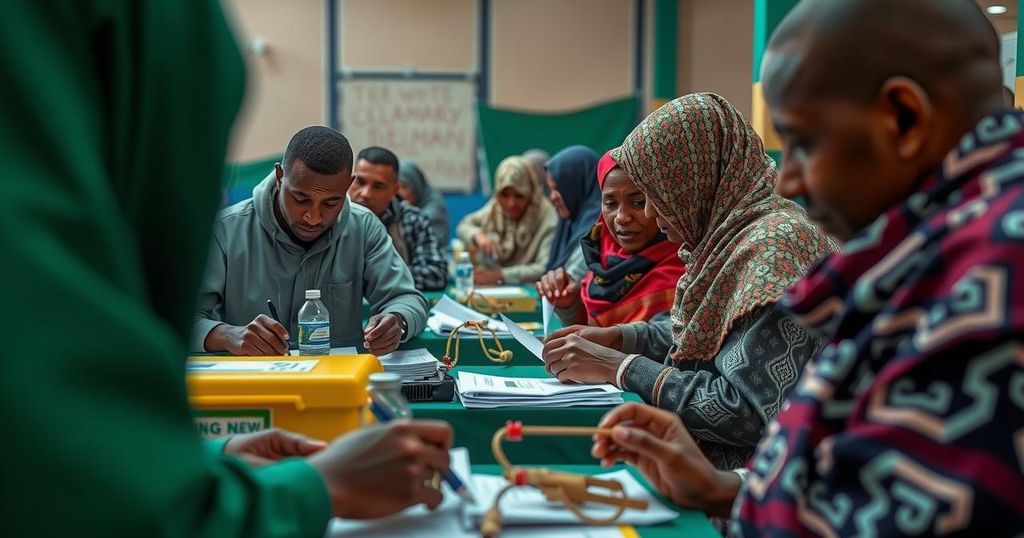Somaliland has commenced vote counting after peaceful presidential elections, with results expected by November 21. The election saw the participation of over 1 million voters. Candidates, including incumbent President Muse Bihi Abdi, promised to enhance democracy and economic growth, amidst ongoing tensions between Somalia and Ethiopia due to a controversial coastline lease agreement.
Vote counting has commenced in Somaliland following the conclusion of presidential elections held across the region. The Somaliland National Electoral Commission (NEC) reported that polling stations closed at 6 p.m. local time, with over 1 million registered voters participating across approximately 2,000 polling locations. NEC Chairman Muse Hassan Yusuf indicated that the counting process would progress from polling centers to districts and regions, with results expected by November 21. The elections were characterized by their peaceful nature, as affirmed by General Mohamed Adan Saqadhi, head of Somaliland’s police force, who confirmed no incidents of unrest were reported during the voting period. Three candidates, including the incumbent President Muse Bihi Abdi, contested the election, each vowing to enhance democracy, stimulate economic growth, and pursue international recognition for Somaliland, a quest that has persisted for 33 years. President Abdi, representing the ruling Peace, Unity and Development Party (Kulmiye), faced opposition from Abdirahman Mohamed Abdullahi of the Waddani party and Faisal Ali Warabe from the Justice and Development Party (UCID). This election marks the fourth presidential race since Somaliland declared independence from Somalia in 1991, a claim that remains largely unrecognized on the international stage. Wednesday’s voting transpired amidst heightened tensions between Somalia and Ethiopia, largely due to a controversial agreement that permits Ethiopia a long-term lease on a portion of Somaliland’s coastline in exchange for potential recognition of its independence. Somalia regards this agreement as an infringement on its territorial sovereignty, heightening diplomatic strains between the two entities. The Somali government has voiced its discontent with Ethiopian involvement in the region and has expelled various Ethiopian diplomats as a demonstration of this stance.
Somaliland declared independence from Somalia in 1991 but has yet to gain international recognition as a sovereign state. Despite this, the region operates with its government, institutions, and armed forces, having established a relatively stable political system with democratic processes. The electoral process in Somaliland, while occurring amid regional tensions, demonstrates the region’s commitment to democratic governance. Currently, tensions with Somalia and Ethiopia revolve around an agreement that complicates Somaliland’s pursuit of recognition and affects regional diplomatic relations.
In summary, the peaceful conduct of Somaliland’s presidential elections and the ongoing vote counting signify an important democratic exercise in the region. The commitment from candidates to foster economic growth and greater governance reflects a forward-looking vision, even as external pressures from neighboring Somalia and Ethiopia create challenges. The anticipated election results and the broader implications of Somaliland’s political aspirations will be closely monitored in the coming weeks.
Original Source: www.voanews.com






